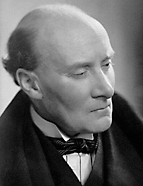

He published, in 1895, as part of the Heroes of the Nations series, the biography Prince Henry the Navigator, in which he sought to analyse the life and thought of Prince Henry in detail. Although he has followed, within the British historiographic panorama, Major’s monograph, recognizing it as one of the main sources of this work, Beazley presented a distinct perspective on the Prince by interpretating him “within a long series of European antecedents […], while, at the same time, analysing the specific Portuguese historical time” (Jorge Borges Macedo, A Historiografia Britânica…, 1973, p. 26). Conscious of the inherent connection between eras, he advocated the idea that the life and, more importantly, the work of Prince Henry could only be entirely understood when also considering its antecedents and subsequent. It is not surprising, therefore, that the first chapters of this biography have been dedicated to the precedents of the maritime exploration of the fifteenth and sixteenth centuries, going back to the beginnings of the medieval geographical knowledge, the expeditions of Nordic peoples, the first Christian pilgrimage journeys, and the Crusades. All these questions would be further explored later in The Dawn of Modern Geography.
Just as Beazley stated that Prince Henry’s action could not have been accomplished – and cannot therefore be understood – “without each and every part of that many-sided preparation in the history of the past”, he has also recognized that the achievements of the following generations could not have been reached without the impetus Prince Henry gave to the maritime exploration, and without the knowledge his labour provided in the field of navigation. But the historian goes further. Although he has highlighted the achievements of Prince Henry, such as having taken the first steps in the discovery of the maritime course to India, and in the conversion of the indigenous peoples to Christianity, Beazley stated that the historical importance of the Prince does not lie so much in the deeds themselves, but rather in the repercussion that his action had on later generations. Admitting accepting the mythical tradition of the School of Sagres (Escola de Sagres) – present in the Portuguese historiography of the nineteenth century and first half of the twentieth century, and to which Beazley dedicated a chapter of the biography –, the historian considers that it was that “school of thought and practice” that enabled the navigators of following generations to achieve their deeds.
In his perspective, it was the “infinitely suggestive” character of Prince Henry’s maritime project that made him the leader of “a true Renaissance and Reformation”, and a historical figure whose work goes beyond the national borders. It is thus understandable that the life of Prince Henry comes up in Raymond Beazley’s interpretation as “the turning-point, the central epoch in a development of many years”, and that he is considered the main figure of the Portuguese past.
